Getting the Greek Right on What It Means to Be a Pastor
I have recently written several articles on the rise of feminism in evangelicalism in general, as well as in the SBC. The latter article featured a lengthy footnote that initially did not translate well into the complex world of online coding. C’est la vie, I thought. Only eggheads read footnotes anyway.
Yet the content of that footnote received fresh relevance following an article from SBC Executive Committee member Russ Barksdale, Why I Will Vote No on the Law Amendment. I hope to publish a point-by-point response soon (stay tuned), but for now, here’s an article engaging the exegesis that is central to the debate.
The Background: How We Got to this Point
There is a movement in evangelicalism to separate the function of pastoring/shepherding from the office of pastor/elder/overseer. One of the first evangelical scholars to make this move was the late Harold Hoehner, whose 900-page commentary on the book of Ephesians has received glowing accolades from many scholars.
I’m genuinely thankful for the work, and especially his robust defense of Pauline authorship. However, in my estimation, Hoehner’s commentary on Ephesians 4:7–11 leaves something to be desired, and—intentionally or not—his work on that passage introduced a crack in complementarian theology and practice that is widening rapidly.
It takes a while for germinating ideas to bear fruit, for good or ill, but that time seems to have come on the hotly debated question of who can be a pastor. Now, roughly twenty years after Hoehner published his arguments for separating the function of “pastoring/shepherding” from the office of pastor/elder/overseer, self-professing complementarians are coming out of the woodwork in defense of calling women “pastors” so long as they aren’t ordained as “elders.” Sam Storms has written in favor of this practice, and Denny Burk has critiqued it here.
The Argument: Pastors are Elders are Overseers
The argument I am making has several parts. Still, the basic thesis is that the New Testament’s use of the nouns “pastor” (poimēn), “elder” (presbyteros), and “overseer” (episkopos)—and the related verbal activities—overlap in such ways that we are meant to see them as referring to various facets of the same ecclesial office, namely, “the office of pastor/elder/overseer”—as the 2023 amendment to the BF&M 2000 rightly states.
Of course, whether the BF&M 2000 is theologically correct in saying so is a matter that’s apparently up for debate in the SBC.
I hope to end that debate here.
First, it is virtually undisputed that the words translated “elder” and “overseer” refer to the same office in the New Testament. This is why the qualifications given to a bishop/overseer (episkopos) in 1 Tim. 3:1–7 and those listed for an “elder” (presbyteros) in Titus 1:5-9 overlap significantly, even including identical phrases. For example, both include the ability to teach (1 Tim 3:2; Titus 1:9).
Second, and closely related to the previous point, Paul himself uses the words “elder” and “overseer” in close proximity, showing us that he clearly sees them as referring to the same office. Paul tells Titus, “This is why I left you in Crete, so that you might put what remained in order, and appoint elders [presbyteroi] in every town as I directed you— if anyone is above reproach, the husband of one wife, and his children are believers and not open to the charge of debauchery or insubordination. For an overseer [episkopos], as God’s steward, must be above reproach…” (Titus 1:5–7).
The interchangeability of “bishop/overseer” and “elder” is why the Baptist Faith & Message 1925 says of the church, “Its Scriptural officers are bishops [overseers], or elders, and deacons.” Again, there is virtually no debate about the interchangeable use of “overseer” and “elder” in the New Testament. They are clearly two words for the same office.
Third, when Paul gathers the elders (presbyteroi) of the church in Miletus together in Acts 20:17, he exhorts them to “pay careful to yourselves and to all the flock [a shepherding metaphor], in which the Holy Spirit has made you overseers [episkopoi] to shepherd [poimainein] the church of God, which he obtained with his own blood” (Acts 20:28).
Similarly, Peter exhorts his “fellow elders” (1 Peter 5:1) to “shepherd [poimanate] the flock [poimonion] of God among you by exercising oversight [episkopountes]” (1 Peter 5:2). Notice then, that an elder is one who carries out the activity of an overseer—an episkopos—by exercising oversight (episkopountes). But he also is one who shepherds/pastors (poimanate) the flock—just as a shepherd/pastor (poimēn) would. This may explain why Peter concludes with a reference not to the “chief Elder” (despite beginning with the word “elder” in his opening address) but to the “chief Shepherd” [archipoimenos] (1 Pet. 5:4)—that is, the Chief Pastor—further establishing a link between the elder or overseer and the pastor/shepherd.
Colin Smothers has put together a helpful graphic on this point, showing all the places where the relevant terms (elder, overseer, and pastor) in both their noun and verbal forms are used in the New Testament.
As you can see, the New Testament authors move fluidly from one term to another, using all three within the same passage in some places. My understanding of this, which I would argue is the proper interpretation of Paul’s authorial intent as he wrote under the inspiration of the Holy Spirit, is that the three terms are meant to highlight three facets of the same office.
As an “elder,” a man in this office must be spiritually mature and possess the character of Christ. As an “overseer,” a man in this office must supervise and lead the congregation. And as a “pastor/shepherd,” a man in this office must feed the flock entrusted to his care.
The Crux of the Debate: Ephesians 4:11 and the Gift of Pastors
All this brings us back to Ephesians 4:11 and the question of whether or not women can possess the “gift of pastoring” without holding the office of pastor/elder/overseer. There (in Eph. 4:11) Paul names “pastors/shepherds [poimenoi] and teachers” in a list that also includes apostles, prophets, and evangelists (Eph 4:11).
Note that Paul here refers to persons, not gifts, as he does when he speaks of “prophecy” (Rom. 12:6) or “teaching” (Rom. 12:7). I think this is a significant point that Hoehner (and anyone who follows him) has overlooked. Specifically, Paul does not seem to be speaking of gifts (function) but of persons (who fulfill certain offices) whose roles are gifts in and of themselves.
I argue this based on the fact that Paul clearly distinguishes the roles of “apostles,” “prophets,” and “teachers” from the ministerial gifts of the Spirit when he says, “God has appointed in the church first apostles, second prophets, third teachers… then gifts of healing, helping, administrating, and various kinds of tongues” (1 Cor. 12:28).
Yet in Eph. 4:11, Paul does not speak of the gift of “apostleship” but the role of “apostles,” not the gift of “prophecy” but the role of “prophets,” not the gift of “evangelism” but the role of “evangelists,” and not the gift(s) of “shepherding and teaching” but the role(s) of “shepherds and teachers” [tous de poimenas kai didaskalous]—two nouns that share a single definite article. This doesn’t necessarily mean the two words refer to one category (as some have argued), but at a minimum, it suggests a very close relationship between the terms.
On this point, Greek expert Dan Wallace has argued that it means that all pastors/elders must be “able to teach” (1 Tim. 3:2; Titus 1:9) without suggesting that all teachers are also pastors/elders. Perhaps he is correct. What matters most for the purposes of this article is that Wallace does not separate the title “pastor” from the function of “pastoring,” as Hoehner, Storms, and others have done (see Daniel Wallace, Greek Grammar Beyond the Basics, Zondervan, 1996, p. 284).
What is conspicuous by its absence, however, is any mention of “elders” or “overseers” precisely at the point in Ephesians 4:11 where one might expect it. The absence of these terms would make sense, however, if Paul meant us to see “shepherds [i.e., pastors] and teachers” as denoting an office (or an office-like role) within the church. Perhaps Paul has in mind a distinction between elders “who rule well” and those who also “labor in preaching and teaching” (1 Tim. 5:17).
Finally, and most significantly, apart from references to literal shepherds tending literal sheep, the only people explicitly said to “pastor/shepherd” (poimanō) the flock of God in the New Testament are Jesus (Matt. 2:6; Rev. 7:17; 19:15)—who is the Chief Shepherd (1 Pet. 5:4), the apostle Peter (John 21:16)—who was also an elder (1 Pet. 5:1)—and the men who fill the office of elder/overseer within the church (Acts 20:28; 1 Pet. 5:2).
This is a massive point that those who want to speak of women “pastoring” without being “elders” miss to their own detriment.
Therefore, “pastoring/shepherding” is something that the New Testament says elders/overseers do, and separating the function from the office is misguided at best and deliberately misleading at worst.
To put it plainly, then, the attempt to force an interpretative distinction between “pastor,” “elder,” and “overseer” is not only historically novel but also exegetically unsustainable. Those who continue to advance this line of reasoning are ultimately pushing an unbiblical argument whose fruit will rot on the vine.
-

Doug Ponder is the Dean of Faculty and Professor of Biblical Studies at Grimké Seminary and a teaching pastor at Remnant Church in Richmond, VA. He holds three advanced degrees from Southern Baptist seminaries. In the past he has served as a trainer for church planters in the SBC of Virginia and as an editor for the International Mission Board.

